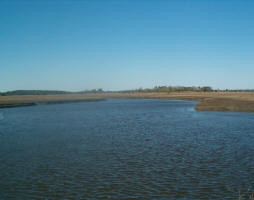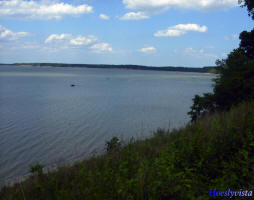 Morocco: Accountability for Better Water Management Results
Morocco: Accountability for Better Water Management Results
Are countries in MENA region able to adapt their current water management practices to meet these combined challenges:
- As the region’s economies and population structures change over the next few decades, demands for water supply and irrigation services will change accordingly;
- Rainfall patterns are predicted to shift as a result of climate change;
- Per capita water availability will fall by half by 2050?
The World Bank report "Making the Most of Scarcity: Accountability for Better Water Management Results in the Middle East and North Africa" tries to answer the question.
The report also shows how sector reform involves cropping choices, and has to consider multisectoral aspects of water management and demand a large paddle of partners and citizens.
Increasing scarcity will force the region to narrow water uses
Across the region, agriculture, which consumes more than 85% of the region’s water, is using water and capital investment inefficiently. In certain countires, irrigation infrastructures are not developed enough to use stocked water. According to the report, MENA countries have to use the water for the things that generate the highest amount of money and employment rather than for crops like wheat that are more cheaply and easily grown elsewhere. The region, with its abundant sun, would do well to concentrate on such cash crops as grapes, tomatoes, melons, and strawberries and increase trade with Europe, she says.
Many of the answers to the region’s water problems rest on changes to non-water policies, such as agricultural price supports that keep some crops artificially profitable, or energy subsidies that make pumping water from aquifers deep underground artificially cheap.
The region has to change water policies
Some countries policies encourage inefficient land use, overuse of nonrenewable water resources, pollution, ecological damage, and poorly maintained infrastructure. Making difficult policy choices now will allow water to continue to provide services, livelihoods, jobs and environmental benefits for the future.
Despite problems, most countries made progressMany are investing in technology such as sophisticated irrigation systems and sanitation, especially in urban zones. Some countries have made significant progress in policy making to manage water demand.
The case of Morocco
Many countries have made signifiant efforts in more rational management of water resources by decentralizing the decision making power in this area or as in the case of Morocco, by also developing public-private partnerships in the arenas of potable water and sanitation as well as in irrigation. From several viewpoints, Morocco is a ‘champion’ in the MENA region. It has distribution establishments for potable water in cities that are among the best managed in the region and has been able to attract the private sector to provide financing and the necessary expertise for managing these services. The elimination of the central government as the main financial entity in the water sector has produced some delays in the development of sanitation as well as for the distribution of potable water services to marginalized populations, particularly in rural areas. Morocco has a law for water and modern institutions and more important, Moroccan officials are conscious of the need for a change in policy that would prioritize managing the demand.
| Contact information | n/a |
|---|---|
| News type | Inbrief |
| File link |
http://web.worldbank.org/WBSITE/EXTERNAL/COUNTRIES/MENAEXT/MOROCCOEXTN/0,,contentMDK:21722173~pagePK:1497618~piPK:217854~theSitePK:294540,00.html |
| Source of information | World Bank |
| Keyword(s) | governance |
| Subject(s) | DRINKING WATER AND SANITATION : COMMON PROCESSES OF PURIFICATION AND TREATMENT , POLICY-WATER POLICY AND WATER MANAGEMENT , RISKS AND CLIMATOLOGY , WATER DEMAND |
| Relation | http://www.semide.net/countries/fol749974/country154256 |
| Geographical coverage | Morocco |
| News date | 14/04/2008 |
| Working language(s) | ARABIC , ENGLISH , FRENCH |
 you are not logged in
you are not logged in





